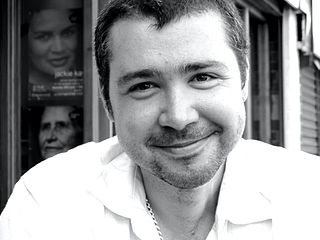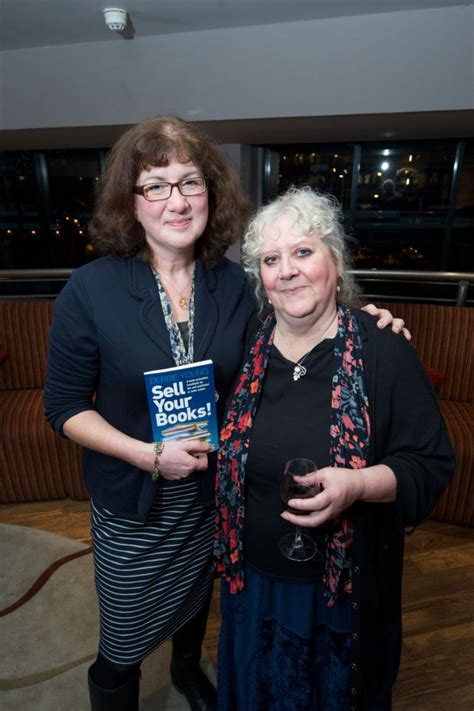A Quote by Steven Hall
It's a stark thought that when we die most of us will leave behind uneaten biscuits, unused coffee, half toilet rolls, half cartons of milk in the fridge to go sour; that everyday functional things will outlive us and prove that we weren't ready to go; that we weren't smart or knowing or heroic; that we were just animals whose animal bodies stopped working without any sort of schedule or any consent from us.
Related Quotes
Memento mori - remember death! These are important words. If we kept in mind that we will soon inevitably die, our lives would be completely different. If a person knows that he will die in a half hour, he certainly will not bother doing trivial, stupid, or, especially, bad things during this half hour. Perhaps you have half a century before you die-what makes this any different from a half hour?
While optimism makes us live as if someday soon things will soon go better for us, hope frees us from the need to predict the future and allows us to live in the present, with the deep trust that God will never leave us alone but will fulfill the deepest desires of our heart... Joy in this perspective is the fruit of hope.
We will not submit to have our own money taken out of our pockets without our consent; because if any man or any set of men take from us without our consent or that of our representatives one shilling in the pound we have not security for the remaining nineteen. We owe to our mother country the duty of subjects but will not pay her the submission of slaves.
A question arises regarding the angels who dwell with us, serve us and protect us, whether their joys are equal to those of the angels in heaven, or whether they are diminished by the fact that they protect and serve us. No, they are certainly not; for the work of the angels is the will of God, and the will of God is the work of the angels; their service to us does not hinder their joy nor their working. If God told an angel to go to a tree and pluck caterpillars off it, the angel would be quite ready to do so, and it would be his happiness, if it were the will of God.
Sometimes it was easier to swim with the current rather than fight against it. There was always a shallow pool somewhere ahead. Memories are like battles, and battles can go one way or the other. You can stand and fight, no matter what pains run from you wounds; or you can turn tail and run, knowing then that the enemy will follow and without mercy hunt you down. We had so many dreams as children. Where do they all go when we grow? Are they swallowed up by the mundane things of everyday life? Or do we lose them, leave them behind us in the dust, for new children to find and take up?
Humans — who enslave, castrate, experiment on, and fillet other animals — have had an understandable penchant for pretending animals do not feel pain. A sharp distinction between humans and 'animals' is essential if we are to bend them to our will, make them work for us, wear them, eat them — without any disquieting tinges of guilt or regret. It is unseemly of us, who often behave so unfeelingly toward other animals, to contend that only humans can suffer. The behavior of other animals renders such pretensions specious. They are just too much like us.
Only part of us is sane: only part of us loves pleasure and the longer day of happiness, wants to live to our nineties and die in peace, in a house that we built, that shall shelter those who come after us. The other half of us is nearly mad. It prefers the disagreeable to the agreeable, loves pain and its darker night despair, and wants to die in a catastrophe that will set back life to its beginnings and leave nothing of our house save its blackened foundations.
We humans are in such a strange position—we are still animals whose behavior reflects that of our ancestors, yet we are unique—unlike any other animal on earth. Our distinctiveness separates us and makes it easy to forget where we came from. Perhaps dogs help us remember the depth of our roots, reminding us—the animals at the other end of the leash—that we may be special, but we are not alone. No wonder we call them our best friends.
As a fond mother, when the day is o'er, Leads by the hand her little child to bed, Half willing, half reluctant to be led, And leave his broken playthings on the floor. Still gazing at them through the open door, Nor wholly reassured and comforted By promises of others in their stead Which, the more splendid, may not please him more; So Nature deals with us, and takes away Our playthings one by one, and by the hand Leads us to rest so gently, that we go Scarce knowing if we wish to go or stay, Being too full of sleep to understand How far the unknown transcends the what we know.



































